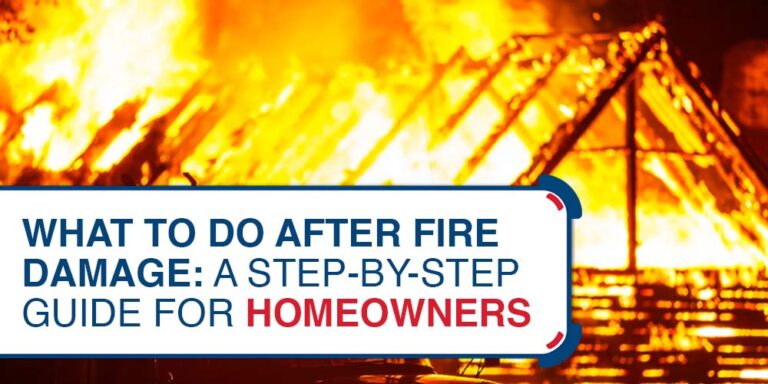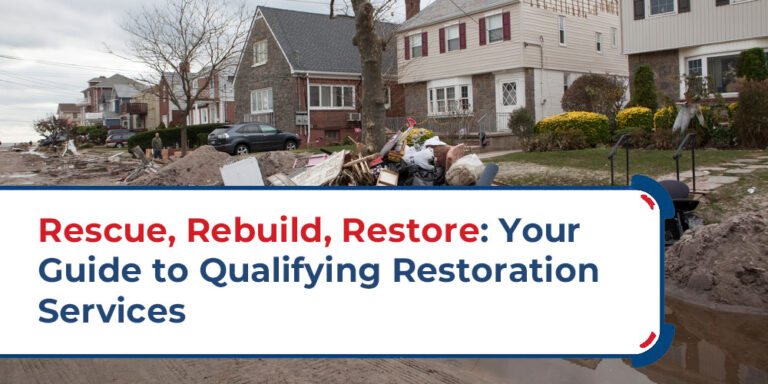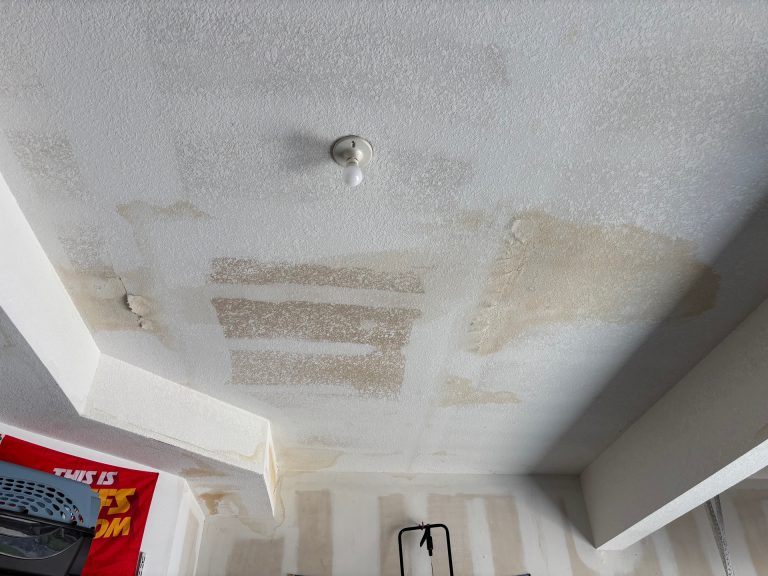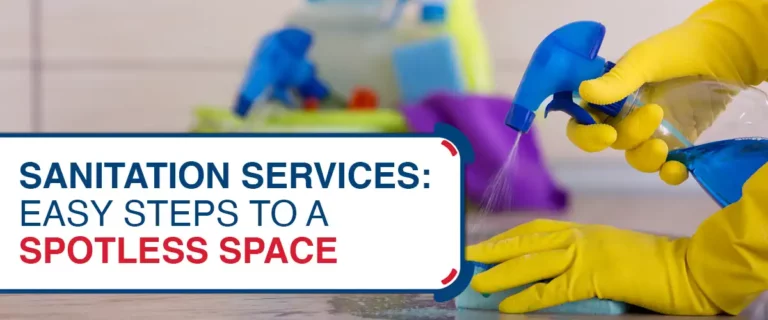What happens when the unexpected strikes your home? Homeowners insurance is your first line of defense. That being said, filing a claim can feel like navigating a maze. From decoding intricate policies to racing against deadlines, the path is fraught with challenges.
No worries. We have laid out ten helpful strategies to guide you through this challenging journey—offering clear and practical advice. Be prepared, stay informed, and secure your sanctuary against life’s unpredictable storms.

Understanding Your Homeowners’ Insurance Policy
Understanding your homeowner’s insurance policy is a step further to knowing exactly what’s covered and what’s not. A proactive approach ensures comprehensive protection and empowers you with the knowledge to make informed decisions about your homeowner’s insurance.
Helpful tips on regularly reviewing and updating insurance policies:
- Review specifics like coverage limits and exclusions.
- Periodically update your policy, particularly after significant changes or renovations.
- Clarify any unclear terms with your insurer.
- Annually compare coverage options to ensure the best fit.
- Consider additional protection for special risks unique to your home.

Maintaining Accurate and Detailed Records
Keeping detailed records is your secret weapon in maximizing homeowners insurance benefits. Detailing property, valuables, and home upgrades is crucial. This meticulous record-keeping serves several crucial purposes including, but not limited to:
- Ensures adequate coverage
- Speeds up Claim processing
- Helps in disaster recovery and
- It provides peace of mind.
Guide for Effective Documentation:
- Photograph or video record your home and belongings.
- Keep purchase receipts, especially for high-value items.
- Log dates and details of home improvements.
- Store records digitally and in a secure, accessible location.
- Update your inventory regularly, at least once a year.

Critical Steps After an Incident
How you respond immediately after your home incurs damage can greatly influence the result of your insurance claim. That said, quick and accurate steps are vital to ensure that you’re fully compensated for your loss. Key actions to take include:
- Immediately report the incident to your insurance company.
- Document the damage with photos or videos.
- Make a detailed list of affected items.
- Protect your property from further damage, if safely possible.
- Keep receipts of any temporary repairs for reimbursement.

Documenting the Damage Thoroughly
Thoroughly documenting damage is a game-changer in the insurance claim process. Snap clear, comprehensive photos from various angles and describe each item’s condition and age. This meticulous approach paints a complete picture for your insurer and bolsters your claim, enhancing the likelihood of a fair assessment.

Teaming Up with Insurance Adjusters
Insurance adjusters are critical in your claim process as they assess damage and determine payouts. To interact effectively, be prepared for their visit:
- Prepare all necessary documents: Have all your damage documentation, including photos and detailed lists, ready for their visit.
- Communicate clearly: Describe the extent of the damage and any repairs that have already been done.
- Stay organized and transparent: This approach streamlines the process and aids in a fair assessment.
- Remember the adjuster’s role: They’re there to assist and piece together the details of your claim.
Through an effective team-up with insurance adjusters, you set the stage for a smooth and equitable claims experience.

Understanding The Claims Process: A Step-by-Step Guide
Knowing how insurance claims work is critical to a hassle-free experience. Here’s a simplified breakdown:
- Report the Incident: Immediately inform your insurance company about the incident.
- Document Everything: Thoroughly document all damages with photos, videos, and lists.
- Adjuster’s Assessment: An insurance adjuster will review the damage to evaluate your claim.
- Claim Review: Your insurer will review the adjuster’s report and your documentation.
- Settlement Offer: The insurer will make a settlement offer based on the assessments.
Avoid pitfalls like delayed reporting, inadequate documentation, and hastily accepting the first offer. Always review offers carefully and maintain open communication with your insurer.

Maximizing Claims: The Impact of Professional Appraisals and Estimates
Securing professional appraisals and contractor estimates is an intelligent move post-incident. These expert evaluations accurately assess the damage and necessary repairs, lending credibility to your insurance claim. They can significantly influence your reimbursement. When you present these estimates to your insurer, it showcases a well-informed and proactive stance. Remember, the more precise and professional your documentation, your position in negotiating a fair settlement strengthens.

Negotiating with the Insurance Company
Negotiating effectively with your insurance company is critical to ensuring you get a fair deal for your claim. Approaching this phase with the right strategies can significantly affect the outcome.
Remember, in insurance claims, negotiation is an art that requires patience and precision. Being 1) well-prepared, 2) knowledgeable about your policy, and 3) assertive in your communication are vital in navigating this process successfully. Here are some essential tips:
- Arm yourself with thorough documentation, including professional estimates and detailed records.
- Understand your policy’s coverage limits and exclusions to set realistic expectations.
- Take your time accepting the first offer; it’s often a starting point for negotiations.
- Communicate effectively and assertively, presenting your case clearly and confidently.
- In case of disputes, consider seeking a third-party mediator or legal advice.

The Role of Claim Experts
In these intricate scenarios, a public adjuster or insurance claim attorney isn’t just helpful – they’re your strategic advantage. Consider hiring them when:
- You’re dealing with a large, complicated claim.
- The insurance company’s offer seems unjust.
- You’re overwhelmed by the claims process.
Their expertise brings several benefits:
- They understand the nuances of insurance policies.
- Skilled in negotiation, they advocate for your best interests.
- They handle the legwork, reducing your stress and time involved.
For awareness: Exercise caution with contractors asking for payment before starting repairs. If they need funds for supplies, accompany them and pay the supplier yourself.

Preventive Measures and Regular Updates
It’s wise to take preventive measures as it can substantially decrease the chances of needing to file for future insurance claims. Adopting safety upgrades, conducting routine maintenance, and performing risk assessments can significantly fortify your home against potential damages.
Moreover, regular updates to your insurance policy are crucial to ensure it aligns with your current lifestyle. This ensures that your coverage is comprehensive and accurately reflects your home’s value and contents. Staying ahead with policy updates can be the difference between adequate coverage and unexpected shortfalls.

Wrapping Up: Ready to Master Your Homeowners Insurance Claims?
Finally, to successfully navigate a homeowners insurance claim in Kansas, be prepared and informed. Key strategies include maintaining accurate records, understanding your policy, documenting damage thoroughly, and engaging effectively with adjusters. Remember the value of professional appraisals and the potential need for expert negotiators in complex scenarios.
Furthermore, staying proactive and organized can ensure a smooth claim process and safeguard your home’s future. This approach isn’t just about filing a claim; it’s about securing your peace of mind. Ready to protect your home? Reach out for expert guidance about homeowners insurance claims today.
References:
- District of Columbia Department of Insurance, Securities and Banking. (n.d.). Filing Property Insurance claims related to flooding and other water damage. Retrieved from https://disb.dc.gov/page/filing-property-insurance-claims-related-flooding-and-other-water-damage








